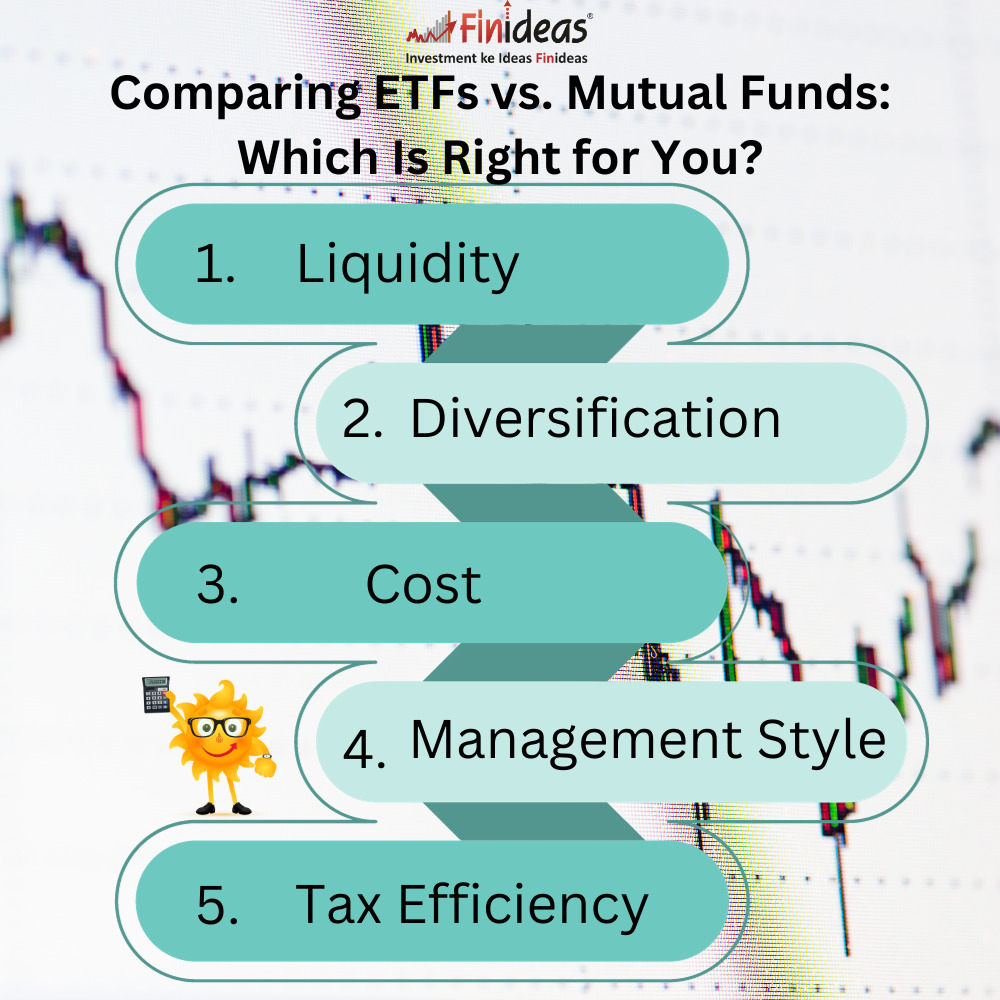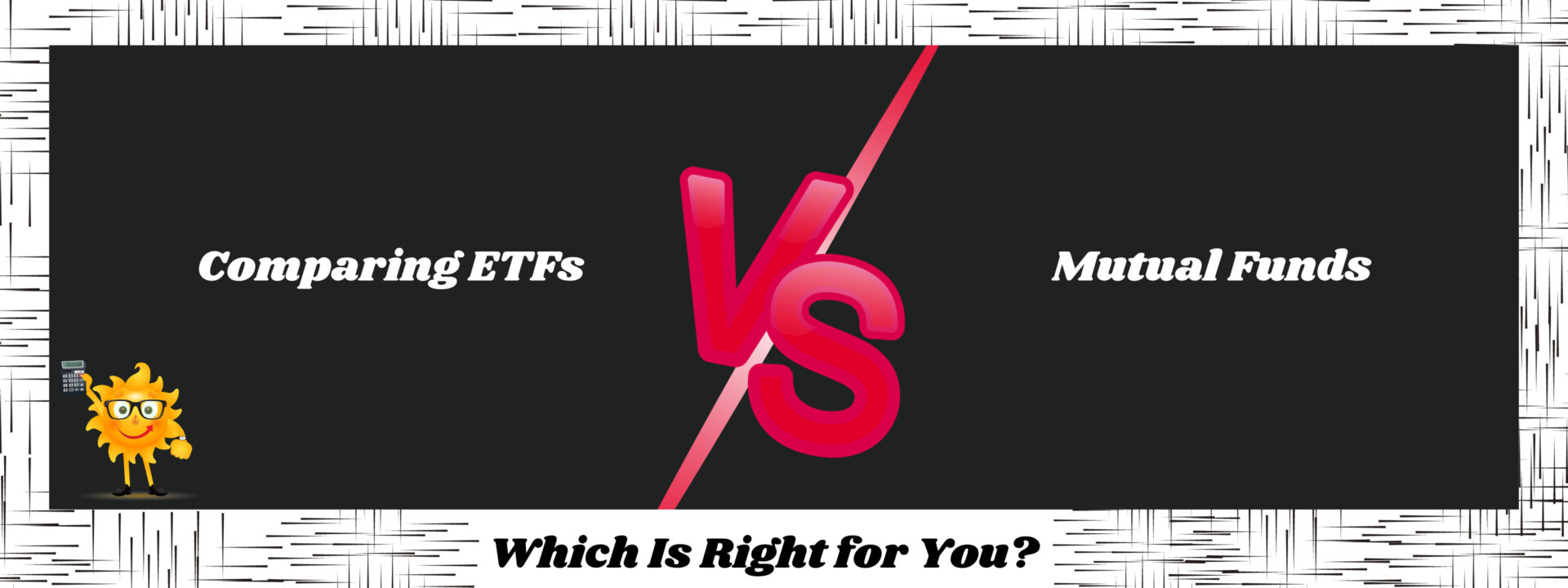Comparing ETFs vs. Mutual Funds: Which Is Right for You?
When it comes to investing, choosing between Exchange-Traded Funds (ETFs) and mutual funds is a decision that every investor faces. Each has its own set of advantages and disadvantages, and the right choice depends on your financial goals and investment style. In this article, we’ll compare ETFs and mutual funds, helping you decide which one is the best fit for you.
ETFs vs. Mutual Funds: The Basics
Exchange-Traded Funds (ETFs):
- Trading: ETFs trade on stock exchanges, which means you can buy or sell them at any point during the trading day at market prices.
- Diversification: ETFs offer diversification because they hold a portfolio of assets like stocks, bonds, or commodities. If You feel Diversification is beneficial for you then you must read about the Index Long Term Strategy.
- Expense Ratios: ETFs tend to have lower expense ratios compared to mutual funds, making them cost-effective.
Mutual Funds:
- Trading: Mutual funds are typically bought or sold at the end of the trading day at the fund’s net asset value (NAV).
- Diversification: Mutual funds also provide diversification by pooling money from multiple investors and investing in a range of assets.
- Expense Ratios: Mutual funds often have higher expense ratios due to management fees.


Which Is Right for You?
- Liquidity: If you prefer intraday trading and flexibility, ETFs are the better choice. You can buy and sell them like stocks.
- Diversification: Both ETFs and mutual funds offer diversification, but ETFs may be more tax-efficient for certain strategies.
- Cost: ETFs generally have lower expense ratios, making them a cost-effective option for long-term investors.
- Management Style: Mutual funds are actively managed by professional fund managers, while ETFs often passively track an index. If you believe in active management, mutual funds might be more suitable.
- Tax Efficiency: ETFs tend to be more tax-efficient due to their structure, making them a good choice for taxable accounts.
Now, it’s your turn to chime in. Are you currently investing in ETFs, mutual funds, or both? What factors influenced your choice? Share your experiences and insights in the comments below. Your perspective could help fellow investors make informed decisions.
Final Thoughts
The choice between ETFs and mutual funds ultimately depends on your investment preferences. ETFs are ideal for those who value liquidity, low costs, and tax efficiency. On the other hand, mutual funds are a good fit for investors who trust active management and are comfortable with end-of-day trading. Consider your investment goals, risk tolerance, and time horizon to make an informed decision about whether ETFs or mutual funds are right for you.
Happy Investing!
This article is for education purpose only. Kindly consult with your financial advisor before doing any kind of investment.

